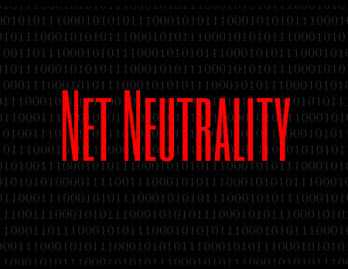Top Takeaways From the Title II Decision

The smarter way to stay on top of the multichannel video marketplace. Sign up below.
You are now subscribed
Your newsletter sign-up was successful
The U.S. Court of Appeals for the D.C. Circuit’s 2-1 majority decision to completely uphold the FCC’s Open Internet Order on every single argued point surprised most everyone, given the number and seriousness of the legal challenges put forth, and the selective skepticism the judges signaled at oral arguments.
Given that this total support of the FCC was not anticipated, what does this potentially seminal court precedent mean practically?
1. For now, the FCC effectively enjoys complete deference from this court on Open Internet issues.
The majority dismissed every single one of the petitioners’ best legal, process and constitutional challenges and proactively cauterized them with court assertions that the FCC’s actions were reasonable, supported by the evidence, and compliant with the APA, or that the challenges were unpersuasive.
In apparently presuming from the start that total Chevron deference was warranted as it discussed and dismissed every single challenge, the court’s majority effectively examined only individual “trees” and, in doing so, apparently ignored most any context of the overall “forest.” The effective organizing principle of Judge Williams’s dissent was to expose that the majority was missing the proverbial forest for the trees in ignoring the contextual, contradictory and cumulative effect of their total deference.
2. The FCC is now the de facto Federal Communications Congress on Open Internet issues and the D.C Circuit appears to be a reliable non-check on the FCC’s regulatory powers.
Until and unless the Supreme Court reverses this decision, at least in part, or Congress passes legislation to the contrary that becomes law, the FCC Open Internet Order is the law of the land and three votes by unelected FCC commissioners may effectively continue to legislate whatever they want as long as they can base their decisions somehow on some Title II provision and provide a modicum of notice, justification and evidence to support the FCC’s decision.
The smarter way to stay on top of the multichannel video marketplace. Sign up below.
Given that the court majority’s total Chevron deference apparently ignored Congress’ role, congressional intent, and its due process guardrails enshrined in the normally guiding Administrative Procedures Act, for now the FCC is practically more of a creature of the Executive Branch than a creature of Congress on Internet issues.
3. The FCC and this affirming court decision de facto create new operative Open Internet law that makes the FCC’s “virtuous circle theory of Internet openness” the effective “modern” purpose and organizing principle behind FCC regulation.
What many forget is that the terms “net neutrality,” “Open Internet,” “virtuous circle of innovation” and “edge provider” are all FCC-created/adopted terms and principles that are not found in U.S. law written by Congress about the FCC. However, this USTelecom v. FCC decision, along with its predecessor decision Verizon v. FCC, use these terms and concepts repeatedly throughout their “net neutrality” decisions, which effectively gives those FCC terms a practical force of law to some extent.
As Judge Stephen Williams’s dissent effectively explains in great detail, the FCC ignores and avoids discussing Congress’s 1996 purpose for the FCC of promoting “competition” because it so conflicts with and undermines the FCC’s homegrown purpose for itself of promoting “net neutrality” and an ”Open Internet” and the “virtuous circle of innovation” for the benefit of the FCC-created constituency of “edge providers.”
The FCC is loathe to talk about “competition” in the context of net neutrality because it kneecaps its necessity and urgency, and because it brings unwelcome attention to the fact that the least competitive segments in the U.S. economy are dominated by giant “edge” platforms that the FCC is proactively protecting and helping, like Google, Apple, Facebook, and Amazon.
4. The FCC’s net-neutrality regime’s greatest strength, that three FCC votes can do anything, is now also its greatest vulnerability — three “no” FCC votes in the future. Only Congress can give the FCC’s Open Internet creation the permanence and credibility it needs to survive long term.
This appeals court decision is a two-edged sword. What three FCC commissioner votes have created in the Open Internet Order, three future different FCC commissioner votes could destroy under the total FCC deference this court decision confers on an FCC majority in the future.
As huge a win as this court decision is to the FCC, and to the very strategic, clever and determined elite brain trust behind its creation and growth, its victory is temporary and highly vulnerable long-term without Congress ultimately embedding their principles, concepts and terms permanently into law.
Scott Cleland served as Deputy U.S. Coordinator for International Communications & Information Policy in the George H. W. Bush Administration. He is president of Precursor LLC, a research consultancy for Fortune 500 companies, and chairman of NetCompetition, a pro-competition e-forum supported by broadband interests.
